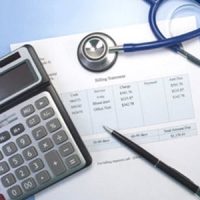Beware Of Fake Medical Bills

Healthcare in the United States is obscenely expensive, even for people with employer-provided health insurance and public marketplace insurance. Some people’s response to getting a medical bill in the mail is to put it in a drawer or the trash can, despairing of ever being able to pay it. Others call the number listed on the invoice to try to deny that they owe the money or just vent their anger at the creditor. A third group will make the biggest partial payments they can afford, in an effort to minimize late fees and keep the bill out of collections. This last group is the most vulnerable to medical billing scams involving fraudulent invoices. If you are in debt because of medical bills, the fraudulent ones or the legitimate but exploitatively expensive ones, contact a Boca Raton debt lawyer.
Scammers Thrive on Confusion Over Which Bills You Shouldn’t Have to Pay and Which Ones You Don’t Have to Pay
If you have ever been hospitalized or had surgery, you have probably gotten medical bills other than the ones you expected. You knew the hospital would bill you, but you were not expecting separate bills from the anesthesiologist and the surgeon. This is unfair, but as of 2022, it is usually legal; the No Surprises Act only limits the amount of money these providers can charge, and the restrictions only apply in the case of emergency medical visits. Since a constant stream of medical bills in the mail is the norm, scammers thrive on the fact that you are already getting more medical bills than you can keep track of. It is a similar scenario to how pickpockets thrive in busy areas where people are too distracted and overstimulated to pay attention to their purses. These scammers are not medical providers charging you more than it is legal to charge; they are fraudsters who found your name and address and are hoping you will fall for the ruse and send money.
How to Tell If Medical Bills Are Real
Fake medical bills often have the logos and content information of real medical practices copied and pasted onto them. This confuses many recipients, since it is common for physician groups that see hospitalized patients to have generic sounding names (such as “Sunshine Health, LLC” or “Physicians Plus” and the like), so it is plausible that a doctor who has treated you would be an employee of one of these ambiguously named companies. These bills also have phony account numbers, but no one expects you to remember your account number at every doctor’s office. The best way to tell if the bill is real is by looking at the date. Did you visit a doctor’s office, any doctor’s office, on the alleged date of service? If you aren’t sure, call the contact phone number and ask questions until you can remember what the bill is for. The receptionist might tell you that it is a scam; it might even be the office’s first indication that someone else is using their logo fraudulently.
Contact a South Florida Debt Lawyer About Medical Bills You Can’t Pay
A South Florida debt lawyer can help you deal with your legally valid medical bills after you have figured out which ones are outright scams. Contact Nowack & Olson, PLLC in Boca Raton, Florida to discuss your case.
Source:
resourcefulfinancepro.com/news/5-tough-to-spot-signs-that-invoice-is-a-fake/
